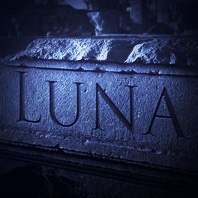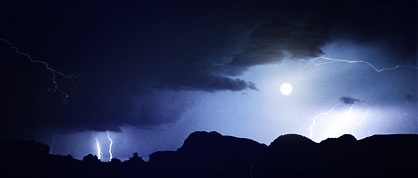The moon inside the word »Monday«

In many languages, inside the word for the weekday »Monday« you find the word »moon«, sometimes slightly modified but mostly easily recognised. This does not appear to be a coincidence. But why? Surely, the Moon cannot only be seen on Mondays and no other good reasons comes to mind quickly why a specific day of the weekly cycle should be connected to the Moon.
Why this is so, only becomes clear when taking a closer look at history. The weekdays’ names derive from various cultures depending on the language, often the roots can be found with the Romans. The named their weekdays after the respective Roman Gods:
• Sunday: dies Solis (Sun)
• Monday: dies Lunae (Moon)
• Tuesday: dies Martis (Mars)
• Wednesday: dies Mercurii (Mercury)
• Thursday: dies Jovis (Jupiter)
• Friday: dies Veneris (Venus)
• Saturday: dies Saturni (Saturn)
In German, the names have changed and were matched to the appropriate Germanic or Nordic deities, as for example the God Donar (Thor) for Donnerstag (Thursday) or the Goddess Freya for Freitag (Friday). These connections can also be found in English, for example with the God Tyr for Tuesday or the God Wodan for Wednesday. Furthermore, there are Christian connections in many Romanic languages, where Sunday turned into the day of God, as in Spanish Domingo or in French Dimanche.

The reason being why Monday was named after the moon, lies in the fact that the naming of days started with the Sun (on Sunday) and was continued with the Moon (on Monday). The second most important celestial body was assigned to the second day.
Here is a list of »moon« and »Monday« in different languages:
• English: Moon – Monday
• Old English: Mōna – Mōnandæg
• German: Mond – Montag
• Old High German: māne – mānetag
• Spanish: luna – lunes
• Catalan: lluna – dilluns
• French: lune – lundi
• Italian: luna – lunedì
• Latin: luna – dies lunae
• Esperanto: luno – lundo
• Swedish: måne – måndag
• Norwegian: måne – måndag
• Danish: måne – måndag
• Icelandic: máni – mánudagur
• Albanian: hënë – E hënë
• Laz: Tuta – Tutaçxa
• Japanese: getsu – getsuyôbi (月曜日)
That a full moon falls on a Monday, by the way, happens about once or twice per year (sometimes even three times).

I love the moon – thanks for the interesting info!
what an interresting article! I so enjoy learning about the moon, and anything to do with it.
What intrigues me is how this came to be agreed upon – or was there an innate recognition in ancient times of a 7-day cycle, the elements of which were indeed influenced by the nearest planetary bodies?
By the way, I live in Portugal where the traditional name of the days of the week were considered to be too pagan by a certain Bishop of Braga a few centuries ago, and so were renamed to the Portuguese equivalent of ‘Day 2, Day 3’ etc… How unimaginative is that!! (In case you are wondering, Day 1 is still Domingo – ‘the day of our lord’)
Thank you for this article. I found it very interesting. I look forward to the next one! Thanks, again!